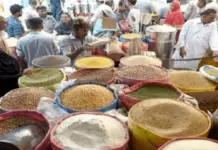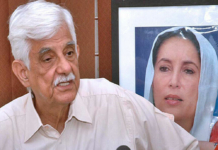With approximately 178 daily newspapers, 117 monthly, 40 weekly and ten fortnightly magazines in Balochistan – in English, Urdu, Pashto and Balochi – there’s a lack of working journalists in the province, portraying a fragile picture of the present and future of the profession.
Many mass communication students abandon their field; instead, they prepare for a departmental or commission job. With Balochistan being a tough ground for journalists, they also cite economic backwardness as a factor in quitting journalism as a profession, not to mention the absence of mass communication as a subject in college.
“Although the number of papers is more than a hundred in the province, we can only see a few functioning from within the province; for the most part, they belong to a non-Baloch,” a Balochistan-based journalist told Minute Mirror on condition of anonymity.
He added that when it comes to English papers, they rarely find one fully functional in Balochistan where a student – aspiring to be a journalist in English media – can continue working as a full-time journalist. “They do not pay to the new appointees,” he lamented.
Amid such harrowing prospects for a journalist in Balochistan, most students, after graduation, opt for preparing for commission and getting a job of any scale. The reasons for that are next to no newspapers in the province and limited vacant positions where one may feel comfortable working as a full-time journalist. Secondly, the broadcast media has few working opportunities, around one to two in a city which cannot accommodate everyone. The same is the case with print media.
Other national newspapers in Pakistan, which keep correspondents in Balochistan, pay them nothing. The situation is understandably even worse for budding journalists. “No one pays the correspondents instead of a leading English daily which is also firing most of its correspondents,” said a senior Pakistani journalist. He added that the newspapers in Pakistan have a limited number of paid staff members. “Paid journalists from Balochistan are few and far between,” he maintained.
Journalists work hard to collect the news, ensure their presence on several important occasions and sometimes even risk their lives by reporting from a province battling an active insurgency. However, when it comes to receiving remuneration, they get nothing. It has already discouraged too many journalists across the country, in general, and Balochistan in particular. “If I had received a good salary from any reputable newspaper, I would have never turned to prepare for a commission job here,” said Shay, a recent mass communication graduate from Balochistan University.
Shay is not the only one suffering from not being paid as a journalist; several others like him quit journalism due to economic issues. On any given day, reporting from Balochistan is already tough. But, on top of that, not receiving any payment and risking your life for nothing makes it an unappealing prospect.
For most people safeguarding their lives and earning decent wages are more of a priority than opting for a dangerous, unrewarding career in journalism.







